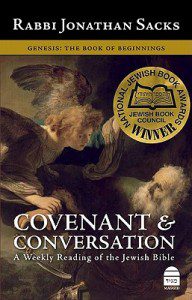In the Hebrew Scripture reading, the prophet Micah is asked how to worship rightly, but he’s not asked just one question; he’s asked four questions:
- “With what shall I come before the LORD, and bow myself before God on high?
- Shall I come before God with burnt offerings, with calves a year old?
- Will the LORD be pleased with thousands of rams, with ten thousands of rivers of oil?
- Shall I give my firstborn for my transgression, the fruit of my body for the sin of my soul?”
The questions are progressively extreme — moving from bowing to burnt offerings to rivers of oil to child sacrifice — and I’ve always wondered what Micah looked like as he listened. I can picture his forehead starting to furrow, his lips to purse, and his eyes to narrow. As the questioners dig themselves in deeper, I can see Micah lower his head, close his eyes, and start to shake his head from side to side. By the end of the fourth question, I can imagine Micah looking upward and mouthing “How long, O Lord, how long?” When Micah’s interlocutors finally pause to take a breath, Micah gives a direct answer in three parts: “God has told you, O mortal, what is good; and what does the LORD require of you but to do justice, and to love kindness, and to walk humbly with your God?”
This verse — Micah chapter six, verse eight — has been heralded as a summation of the mitzvot, the 613 commandments in the Torah that detail how to lead a good Jewish life. Rabbi Simlai said, “613 precepts were communicated to Moses, 365 negative precepts [things not to do, corresponding to the number of days in the year] and 248 positive commandments [corresponding to the number of bones in the human body]. Micah came and reduced them to three.” That’s a distillation that might make inspire jealousy in even the best editor for a Reader’s Digest condensed book.[1]
What does this ways of life look life? When Micah talks about doing justice before coming to worship—or doing justice as worship—part of what he is talking about is:
- The justice of Habitat for Humanity, seeking to provide everyone on earth, “a simple, decent place to live”;
- The justice of, tending the sick, or assisting people living with HIV/AIDS;
- The justice of homeless shelters or food banks, feeding the hungry.
Micah reminds us that worship—or being a Christian—is not, first of all, about how we worship, or what gifts we bring to worship, but how we treat the “least of these” that are all around us everyday.
Micah also emphasizes loving kindness, or as other translations say, “loving goodness” or “loving mercy.” It seems so simple, but it is transformative to be truly, genuinely happy for the success to others—to revel in simple acts of generosity. Loving kindness also helps support doing justice—not just because it’s the right thing to do, but because doing justice can bring deep joy.
Micah’s final point is to walk humbly with your God. Many commentators say a better translation would be to walk wisely with God. And translating the Hebrew as “wisely” connects to our epistle reading for today. Justice and kindness may not always seem like the wisest course of action, but, as Paul reminds us in his first letter to the Corinthians, “Has not God made foolish the wisdom of the world? …For God’s foolishness is wiser than human wisdom, and God’s weakness is stronger than human strength.”
But perhaps even more important than whether to use “humbly” or “wisely” is the presence of the word God in third and final part of Micah’s prescription. In our busy, frenetic world, it can be easy to hear only the first two part of Micah’s advice about justice and kindness—adding more to our “to do” list and forgetting about the third part: God. But it is exhausting to do justice and kindness without relying on a relationship with God to enliven and support your work.
As Micah indicates, justice and kindness are primary—and you should do those before worrying about the details of how to worship; but spending time with God—loving God—remains central as both the motivation and source of energy for these acts.
When someone asks you what really matters—when someone asks you what God wants, what is moral, what is right—Micah has said it simply: “God has told you, O mortal, what is good; and what does the Lord require of you but to do justice, and to love kindness, and to walk humbly with your God? ” Justice. Kindness. God. Amen.
Notes
[1] For more the source of the Rabbi’s comments, see The Jewish Study Bible page 1215.
















